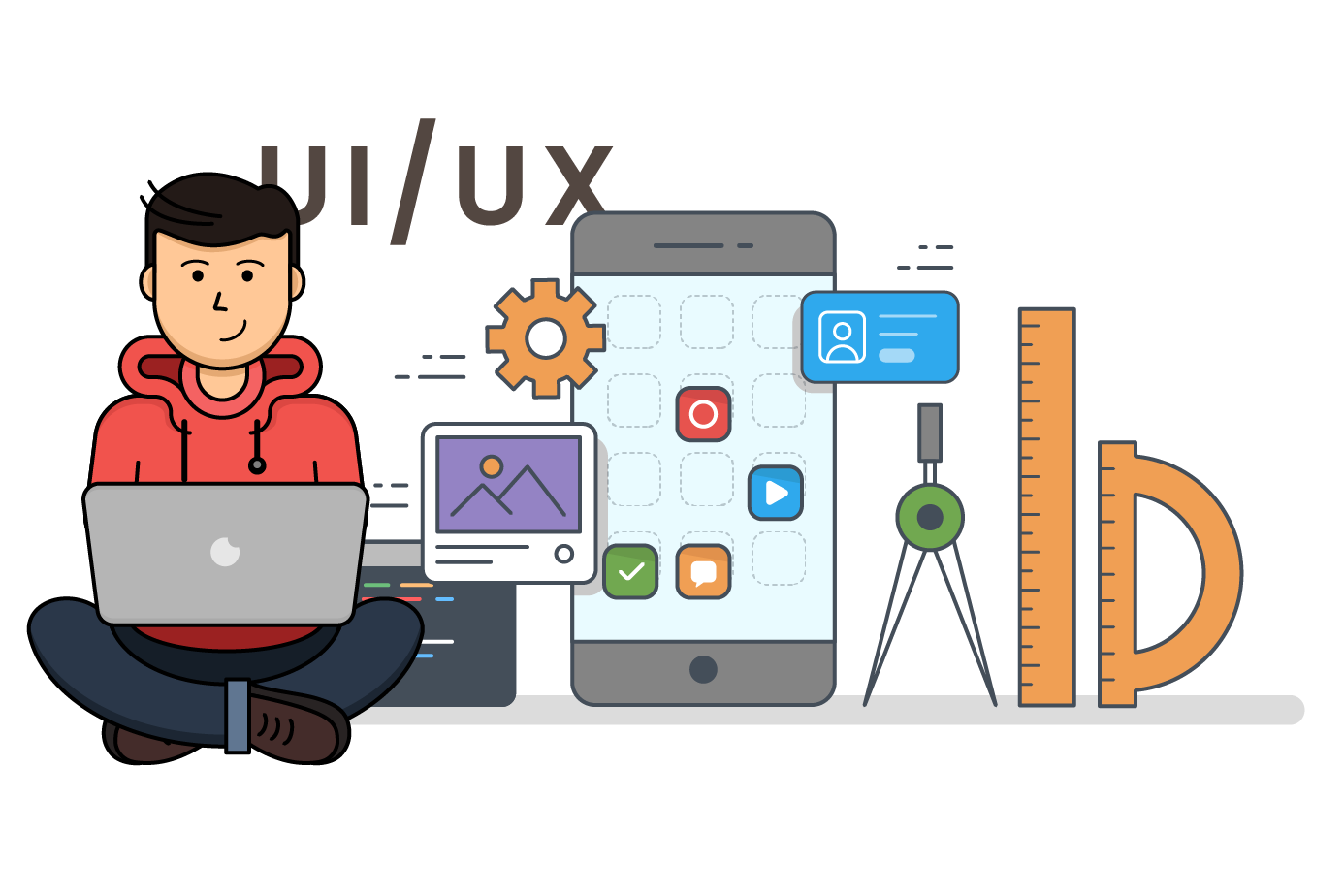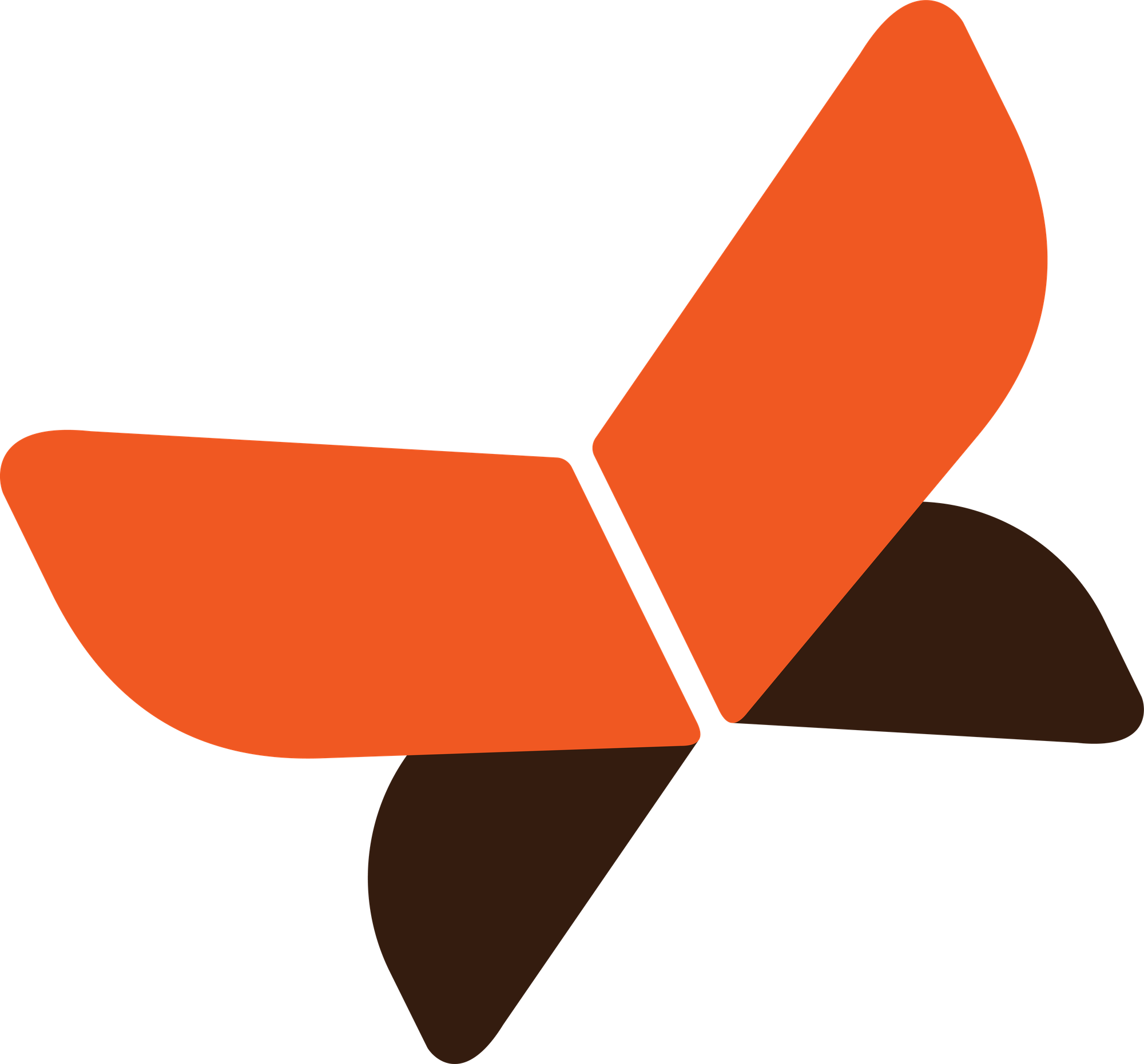My journey from a front-end developer to a UI/UX designer. The realization after a career switch.

Considering how vast the world of IT and technology is it can be overwhelming to choose a niche. Once you are out in the real world, as long as you have a desire to learn and explore, the sky's the limit. This is my story of how a Front-end developer with a Computer Networking and IT Security degree is now a UI/UX designer.
How did it all start?
A lot of what I learned in terms of programming in the early years of my career was all about experimentation. Like everyone, I started with HTML, CSS, and JavaScript. Slowly became familiar with Bootstrap and SASS.
We are always looking for that next big thing, the hunger of wanting more will always be persistent. I asked myself, Is this enough? What if Python programming is better? What if PHP is easier? What if React earns me more money? As it is more demanded in the market. These are some of the basic dilemmas that every novice programmer deals with and there is nothing wrong with it. It is very legit to feel this way.
How did I overcome all my career dilemmas in the early stages?
Stay curious and don't be afraid to experiment!
If you are in a situation you don't like, you cannot expect others to change it for you. Keeping that in mind, I firstly threw myself at a 3-month long paid Django framework training where I learned the basics of Python and created websites using Django. Since I had this big question about what Python programming was like. After the in hand experience I knew if I wanted to pursue a career with it. Surprise! surprise! I didn't.
Similarly, over the coming years, I experimented with PHP, WordPress, webflow and React.
Does your degree matter? How did I get into Computer Networking and IT Security?
To give a broader sense of the story. I had pursued a Computer Science degree which I eventually dropped out of after 2 and a half years. This strengthened my basic programming knowledge. I decided to explore other fields except for programming. This pushed me into the world of Computer Networking and IT Security, purely out of curiosity and boredom. Although I completed the degree with flying numbers, I sensed that this aspect of the profession may not provide as much room for imagination or a sense of creation as I had hoped. A degree helps a lot but it is not mandatory if you are competent and passionate enough. Except for that, it's never too late to switch careers, if the expectations of your growth are not being met.
Why did I quit my front-end developer job?
I eventually ended up doing an internship on React JS just because it was much easier to find a programming job and I had some expertise in it to start with. Alongside my internship, I also worked as a travel content writer and a photographer as side jobs because it was much more fulfilling and to keep my options open.
After the internship, I worked as a front-end developer for about 7 months in the same company. This was the perfect amount of time for me to realize this was not what I wanted to do for the rest of my life. As a person with an eye for art and creativity, I love colors, designs, and creating visuals with humor. Programming was nowhere near it, it felt forced and unnatural. This reason was enough for me to quit the job and was a much-needed experience for my career.
How did I prepare myself for a UI/UX designing career as a beginner?
Case Studies! Work on the quality and variations of your case studies to create a strong profile.
After having worked professionally for a company, I learned the responsibilities of a UI/UX designer. It seemed like a perfect mix of work and fun, enough to keep me interested.
I started with the “Design Thinking Process” Google course. I took additional Udemy courses to strengthen my design fundamentals and also made a regular habit of reading the latest UI/UX-related articles. Through these courses, I realized the crucial role of research and UX in any design process. I rapidly started building my profile with case studies and mini projects watching YouTube tutorials. Alongside that, I was also interviewing for as many companies as I could and that was one of the best things I had ever done. Not only that allowed me to explore different company cultures but learned so much more about what I was lacking to be ready for a UI/UX job and what next I should be preparing for. On the other hand, every other interview made me more confident for the next one.
How is it going? What is it like to be a UI/UX designer?
It's been great ! Being able to express myself through ideas, colors, and designs has been the biggest perk. Besides that, the freedom to experiment and create has been very important not only career-wise but also for personal growth. After the completion of a certain design or project, UI/UX has been critical for me to reflect and develop a self-concept. The other significant aspect of UI/UX has been being able to apply its principles to real life. Proper use of Empathy for people, aesthetics, and the importance of consistency and iteration is a necessity in the field of UI/UX which can be branched outside of work. Except for that, a better partnership at work would have helped a lot, I guess! The “lead UI/UX designer” is not proving to be much of a help though.
Talking about the technical growth, it has opened up a door for me to pursue an interest in graphic design, animation, digital painting, motion design, visual arts, UX writing, Data Analysis, and data visualization. It has motivated me to be in a headspace to explore more and want more. It has also made communication easier. As you have been on both sides of things, you can view problems from different perspectives. Collaboration with developers, project managers, product managers, and QA becomes much easier. Realizing how important Storytelling or a concrete flow is while creating any project, UI/UX has immensely helped me succeed in this department.
What did I realize after all this experience?
UI/UX is more than just a term for product design. The more you learn about the principles of design you understand how technically everything you see (fonts, colors, spacings, illustrations, etc) should please a user visually in a collaborative manner. You realize UX is more than just making a usable product. UX is more connected with the human psychology of what a user likes and dislikes and how a user behaves in certain conditions. It teaches you about building empathy for users so they can have the most effortless experience using the product you design. These can be used in your daily habits too if you look at the bigger picture.
This phase of finding the right career choice has been a rollercoaster and has made me realize no one really knows what they are after. You have to be brave enough to explore and hit and trial with the opportunities you are presented with. If you are not provided with the opportunities, make one for yourself. As quoted “You miss 100% of the shots you don't take”, UI/UX has been the epitome of this in my life. Work is something you will be doing everyday for god knows how long and if work feels like “work”, it is easy not to enjoy it. So, it's better to explore rather than settle for a career you know will add no value to you as a professional and a person.
You can fail at what you don’t want so you might as well take a chance on doing what you love. - Jim Carrey


